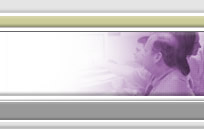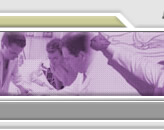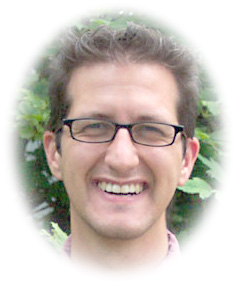



|
The Little Details of
Practice
 by Jarrod Shapiro, DPM
Staff - which staff members greet your patients at the window? In our office we have a bubbly, outgoing lady who always has a friendly comment or smile at hand. Would you want a brooding, shy, or angry staffer to greet patients? On the other hand, our medical assistant, who also functions as the surgical scheduler, is both efficient and able to firmly deal with hospitals when necessary. Consider also that your staff are constantly in contact with other physicians' staff. Referrals coming to you are often a result of your staff talking you up! Educating your patients - How many times have you discussed the causes of a patient's bunion or heel pain? How much do they truly understand what you're saying? Consider adding written explanations of various pathologies to further patient education. This shortens the amount of repetitious activity during the day and frees you up for more patients while providing a more professional appearance. I would highly recommend this for stretching exercises. Here are a few other details to consider:
These are just a few of the many details to consider whether you're planning on associateship or solo practice after residency. For those of you planning to open a practice soon, hopefully you're already thinking about these and other ideas. Remember, the devil's in the details! Tons of letters below. Talk to me,
***The Golden Rule*** I completely understand what you are talking about. I have seen disrespect first hand live and in person. It too has happened to me and many of my past fellow co-residents and underlings. It seems like some of our attendings have no regard to respect. I think once a person becomes an attending, they feel that they have entered the world of GOD. After talking to some of the old school attendings, they have expressed how they were trained, and from that conversation I started to understand why some of the older attendings continue to act the way they do. Respect is something that is earned and not given. I truly believe in the concept "do unto others as you would have them do unto you." So I guess the question is, why do we continue to subject ourselves to this awful disrespect? I think a lot of these people can get away with it because they hold the key to our success. For example, if we were to stand up to our staff and hold our ground, then they would think that we are disrespectful, and when it comes time for hospital privileges, then we may get denied. Who knows.... its a crazy situation and I always wonder WHY?? Thanks.. Dameon Brown, DPM ***Respect*** You're right. It's just a shame you even have to say this. At our program, our director insists we treat the staff well, regardless of what happens within our department. Jeffrey Ali, DPM Editor's Response Kudos to your residency director for establishing an environment conducive to education!. - Jarrod ***Ready-Made Forms*** Good article on documentation but you failed to mention some of the ready-made forms that are also very good for documentation purposes. I rotate with a few DPM's that use them and it's incredible how much you can document with just checking off boxes on the pre-made forms. They even help to remind you to document certain things in order to get paid. Raman Sinha, DPM Editor's Response Good point! Some of these forms are excellent. I'd don't, though, think they're a supplement to understanding the system in the first place. Remember, this is your livelihood, and it's in your best interest to know what you're doing and not rely on others for the answers. - Jarrod ***A full toolbelt*** I am a 2nd year resident at Temple University Hospital program. I completely agree with your opinions on conservative treatment. I have a belief that, as the podiatric profession has evolved, we have turned away from our conservative, biomechanical roots (no pun intended) in favor of surgical options. Our mindset is becoming that of a mini-orthopod--cut first. Prior to entering the podiatric profession, I worked for as a pedorthist in Canada for six years. In order to become a pedorthist in Canada, it is required that you have a related undergraduate degree (ie physiology or science). It is also required that you complete a 6000 hour apprenticeship under a certified pedorthist. During the roughly three years of apprenticeship, you must pass three exams in order to call yourself a certified pedorthist or C. Ped. When you don't have surgery in your arsenal, you learn to become very effective with your conservative care. Over the past six years, I have had to bite my tongue many times as I have observed both professors and attendings ignore excellent conservative treatments in favor of surgery. I feel that this marginalizes what this profession has to offer its patients, and it does our young practitioners a great disservice. I believe that what makes our profession unique is our ability to offer both conservative and surgical solutions to patients who are only given surgical options by an orthopod. After all, it is their body; shouldn't we present all the options to our patients? Shouldn't we have a "full toolbelt" when we walk into the exam room? If you tell me that my daughter can have reconstructive flatfoot surgery and be laid up for three months and you can't guarantee that her pain will be gone, or we can try an orthotic, I just might want to try the orthotic first. Neil Washington, DPM
Editor's Response I agree with your sentiment. It's difficult not to fall into the strictly surgical rut when we're often compared with each other and the orthopedists by our surgical techniques. Is it surprising that our most prominent speakers are surgeons? In my experience I haven't seen any "gurus" of nonsurgical care lecturing on the circuit outside of the noted biomechanics folks. Of course, the best surgeons I've met will try nonsurgical routes of treatment before turning to steel. I advocate to everyone to study the nonsurgical methods as well as the surgical ones before you graduate from residency. - Jarrod ***Conservative Care*** Interestingly enough, Roger Mann's "Surgery of the Foot and Ankle" has a chapter on conservative care. Short, but pretty well written. McGlamry has a chapter on identifying surgical instruments, and if you look carefully on page 5, there's a photo on how to hold a scissors. I suppose each text was written with a specific audience in mind? Like you, I'm also a recent graduate of a 3 year program. I started practice this July also. I'm fortunate to have a successful pod as a father, who has been a constant source of aggravation and annoyance, but also happens to be really good at conservative care, so I get to learn all the podiatry that I didn't get much of in residency. Eric Edelman, DPM
Editor's Response My point exactly. All of the surgical texts make short mention of the available nonsurgical options as a quick prelude to the extensive surgical discussion to follow. Eric makes the point well, that we need a text on nonsurgical care of the foot and ankle. - Jarrod
|












